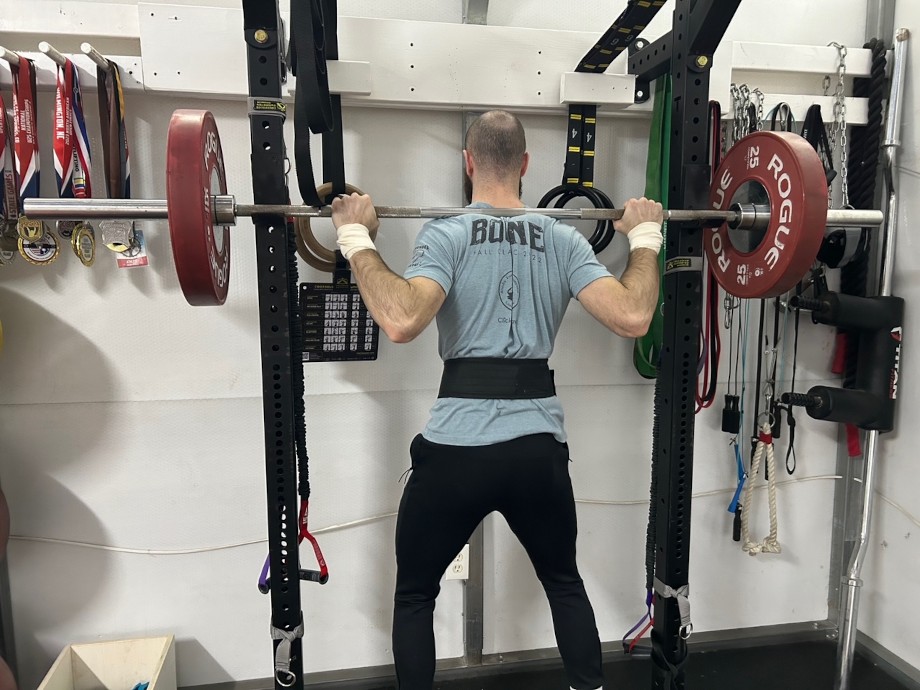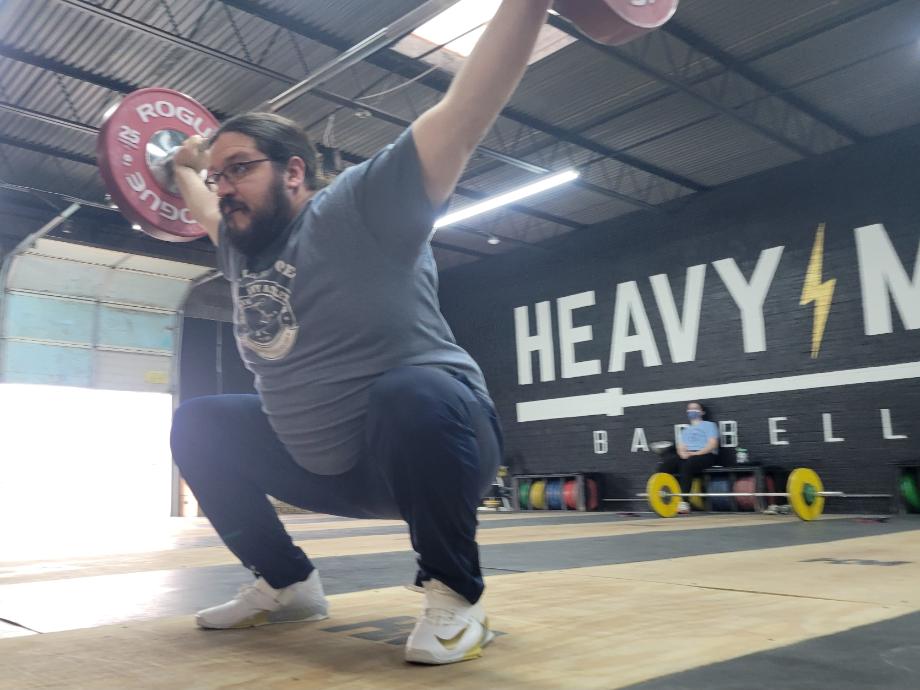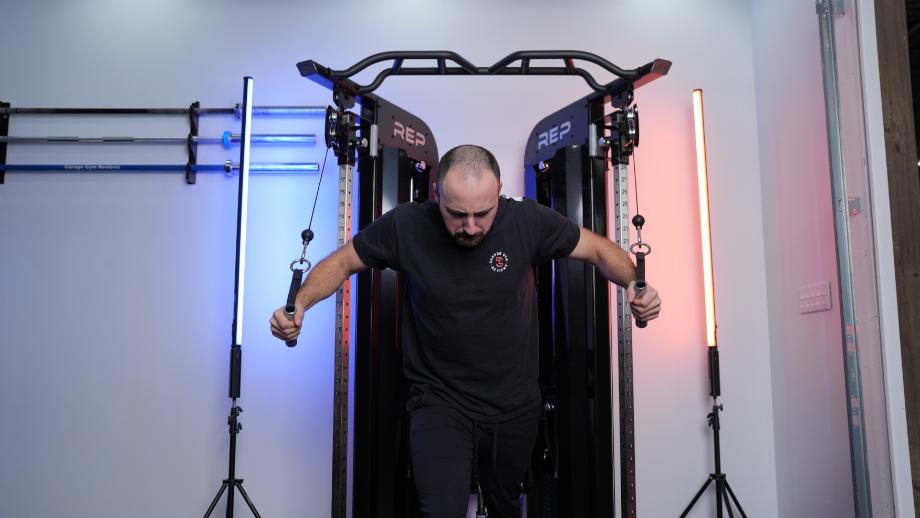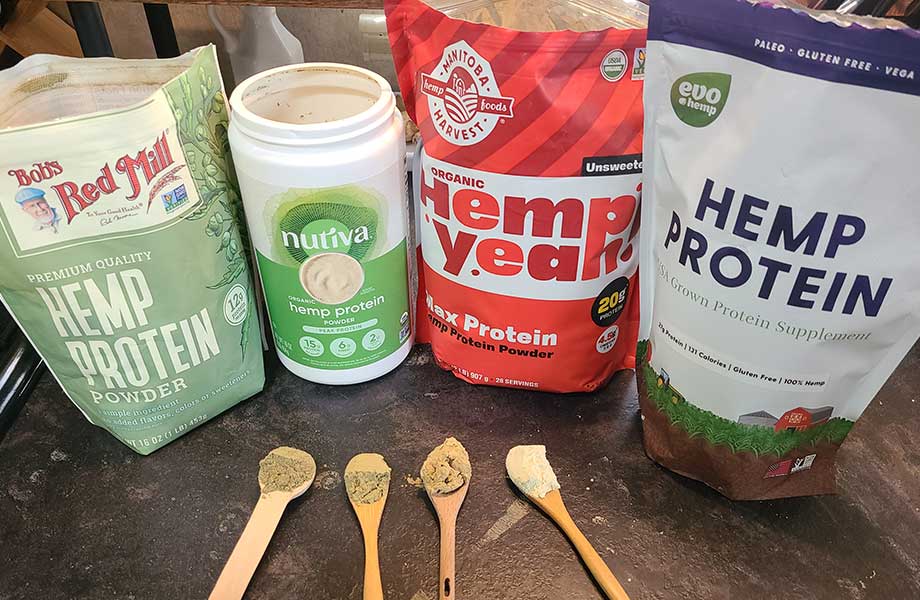The optimal rep range per set for your fitness goals usually gets the spotlight in resistance training discussions. Don’t get me wrong—knowing this is extremely important. Lifters wanting to gain muscle mass (aka muscular hypertrophy) need a different number of repetitions per set than those looking for strength gains or muscular endurance.
RELATED: How To Increase Strength
Of equal importance is how many sets per muscle group per week you should do. Lower volumes may not get you the results you’re looking for, or you may find that your gains are too slow, leaving you feeling deflated. On the other hand, doing higher volumes than necessary can lead to injury or fatigue.
I’ll start by explaining the differences between training volume, training frequency, and training intensity. Next, I’ll lay out how many sets per muscle group per week you should aim for based on three fitness goals. Last, I’ll share sample workouts and outline the possible risks of your weekly training volume being too high.
What is Training Volume?
Training volume in strength training is the amount of work you do in a specific period. Say you do a chest and back workout with 18 sets—your volume for this training session is 18. Technically, training volume can get more complicated than this because it can also factor in the number of repetitions and weights lifted during those 18 sets, but for simplicity, let’s not worry about this.

Usually, you wouldn’t calculate the volume per session if you’re doing a workout split such as chest and triceps or back and biceps because you’re likely to hit each muscle group multiple times weekly. Instead, the number of sets per body part per week (aka weekly sets) is the standard measurement of training volume.
What is Training Frequency?
Next is training frequency. You know how many weekly sets you must do in your workout routine. Training frequency refers to how often you need to hit the gym each week to get your sets done. Some lifters like going to the gym more often and doing fewer sets each time, while others prefer doing more sets each workout and taking more rest days.
RELATED: Workout Schedule For Beginners
What is Training Intensity?
Training intensity is how difficult the set or workout is. There are several ways to increase the intensity—for example, you can increase the load you lift or decrease your rest times. It’s worth noting that if you increase the intensity, you’ll probably need to decrease your training volume to accommodate.
How Many Sets per Muscle Group per Week Should You Do?
Now that you know the difference between training volume, training frequency, and training intensity, let’s get into how many sets per muscle group per week you should do based on three distinct fitness goals:
For Muscle Gain
For muscle growth or gain, multiple sets are better than one set, as shown in a 2010 study by the Journal of Strength and Conditioning Research1. Beginners doing little or no weightlifting can benefit from adding more sets to their training program.
But what exactly does “multiple” mean? And what’s the optimal training volume? A 2017 systematic review by the Journal of Sports Sciences2 found that 10+ sets per muscle group per week will produce greater gains in muscular hypertrophy than doing fewer than 10 sets.
From my experience, trained individuals can do as high as 20 sets per muscle group per week, especially for the larger muscle groups such as the quads, hamstrings, chest, and back. I regularly do 15 to 20 sets on a back day without any issues, but I’ve been training for over a decade, so I need high-volume workouts to continue making gains.
RELATED: How To Build Muscle
For Strength
Powerlifters looking to improve their one-rep maximum on squats, deadlifts, and bench presses may find that performing one single set two to three times per week is enough, as shown in a 2020 systematic review by Sports Medicine3.

When you do lower repetitions per set for strength gains, you don’t take each set to failure, which means you can—and maybe should—aim for at least 10 sets per muscle group per week.
A 2017 meta-analysis4 by Sports Medicine agrees—it found that medium or high weekly set volume is more effective than low volumes in producing strength gains. Practice makes perfect, and as long as your body can recover effectively for the next session, I don’t see the harm in this level of weekly volume.
For Weight Loss
If your goal is to lose weight, although the number of sets per muscle group per week can play a role, being in a calorie deficit is the driving factor. Your workout plan can be tailored toward either hypertrophy training or strength training, both of which you saw above. The more muscle you have, the more calories you’ll burn at rest and while exercising.
Contrary to popular belief, you don’t need endless sets and reps to lose weight. Stick to around 10 or more sets per muscle group per week, and focus on consistently being in a calorie deficit. The rest will follow.
Sample Workouts
We’ve gone through how many sets per muscle group per week you should be doing based on three fitness goals. Below are sample workouts that I—a certified personal trainer (CPT)—would recommend to a client:
For Muscle Gain
Here are workouts for back, legs, and chest that lifters can use to gain muscle size:
Back Workout
| Exercise | Sets | Reps |
| Pull-Up | 3 | 6 |
| Bent-Over Barbell Row | 4 | 8 |
| Lat Pulldown | 4 | 10 |
| Seated Cable Row | 4 | 10 |
| Dumbbell Reverse Fly | 3 | 12 |
Leg Workout
| Exercise | Sets | Reps |
| Barbell Squat | 4 | 6 |
| Dumbbell Romanian Deadlift | 4 | 8 |
| Leg Extension | 3 | 10 |
| Leg Curl | 3 | 10 |
| Standing Calf Raise | 3 | 12 |
Chest Workout
| Exercise | Sets | Reps |
| Barbell Bench Press | 4 | 6 |
| Dumbbell Incline Chest Press | 4 | 8 |
| Cable Fly | 3 | 10 |
| Push-Up | 3 | AMRAP (as many reps as possible) |
Warm-up sets are additional, so if you want to do lower-body exercises such as bodyweight squats or glute bridges before starting your leg workout, add those to the chart above.
For Strength
Two of my all-time favorite strength workouts are the 5×5 workout and the 5/3/1 workout. I could program my own, but both have stood the test of time and continue to deliver. The StrongLifts version of the 5×5 workout goes like this:
Workout A
| Exercise | Sets | Reps |
| Barbell Squat | 5 | 5 |
| Barbell Bench Press | 5 | 5 |
| Barbell Row | 5 | 5 |
Workout B
| Exercise | Sets | Reps |
| Barbell Squat | 5 | 5 |
| Barbell Overhead Press | 5 | 5 |
| Barbell Deadlift | 1 | 5 |
Alternate between Workout A and Workout B. You’ll do three sessions each week, so one week, do Workout A twice, and the next Workout B twice. I recommend taking at least one rest day between each workout, and every session involves adding five pounds to the load, except for deadlifts, where you’ll add 10 (aka progressive overload).
For Weight Loss
For weight loss, you can do the muscle gain or strength workouts above. Alternatively, here’s a full-body workout that can be repeated three times a week so you’re hitting the magic number of 10 sets per muscle group per week for the major muscle groups:
| Exercise | Sets | Reps |
| Barbell Squat | 4 | 6 |
| Dumbbell Chest Press | 4 | 8 |
| Overhead Press | 4 | 8 |
| Lat Pulldown | 3 | 10 |
| Seated Cable Row | 3 | 10 |
| Leg Curl | 3 | 12 |
I appreciate that there’s a lot of volume in this workout, but the benefit of doing full-body workouts is you get more rest days each week. You’ll need to go to the gym more often if you train each muscle group separately. There are pros and cons for each training style, so it comes down to your preference.
Can You Do Too Many Sets per Muscle Group per Week?
While I wish I could eat as much dark chocolate as I’d like, too much is a problem. The same goes for training volumes. Also known as “junk volume,” there’s a point where doing more sets per muscle group per week won’t continue getting results. It could do the opposite and lead to injury or fatigue.

The main problem lies in finding how many sets per muscle group per week are too much for you as an individual. I wish I could say that 23 sets per muscle group per week is the upper limit, but unfortunately, it doesn’t work that way. Experiment with different weekly volumes and see how they impact your recovery. If it’s negatively affecting your session, consider dropping the number of sets slightly.
How Many Sets per Muscle Group per Week: Final Thoughts
Regardless of whether your fitness goals are to gain muscle mass, increase strength, or lose weight, most people could benefit from doing between 10 and 20 sets per muscle group per week. You don’t want to go too high because this could lead to injury or fatigued muscles, which may negatively impact your next workout.
- More experience equals more sets. As you advance in your training career, you’ll need to increase the number of sets per muscle group per week to continue making gains. What worked last year won’t work today.
- Recover properly. If you want to keep up the number of sets you’re doing, you’ll need to sleep well, eat enough protein, and take rest days. Remember that resistance training is a marathon, not a sprint.
- Don’t feel demotivated. There will be times when you can’t do 10 sets per muscle group per week. You might only be able to get to the gym once because of life circumstances. Do what you can and try not to feel demotivated.
RELATED: How Much Protein Do I Need?
How Many Sets per Muscle Group per Week: FAQs
How many sets to build muscle?
We’ve covered how many reps to build muscle previously, but this is a great question. For muscular hypertrophy, studies show2 that 10 or more sets per muscle group per week are better than fewer than 10 sets. Larger muscle groups such as the back and legs can go as high as 20 sets.
Several factors may affect how many sets per muscle group you can do. These include, but are not limited to:
– Your age
– How long you’ve been training
– Rest times
– How well you’ve recovered from the previous session
– The results you can get from low and high set volumes
Every lifter is different, so try different weekly volumes to see what works for you.
Is 12 sets a week per muscle group enough?
Twelve sets a week per muscle group is enough unless you’ve trained for several years. If you have, you might want to do between 15 and 20 sets to continue getting results. For beginners, 12 is a good number to aim for. You might want slightly higher on the legs and back because they’re larger muscle groups than the chest and shoulders, but you can’t go wrong with 12.
How many sets per week is overtraining?
This is a difficult question to answer because several factors determine how many sets per muscle group per week someone can do. What may be right for one individual may be overtraining for another. It’s fair to say that more is not always better, as shown in a 2017 study by the Journal of Strength and Conditioning Research5. It found there’s no significant difference between doing five sets or 10 sets of an exercise for increasing strength and size.
Try different set volumes per week and see how your body responds. If you’re fully recovered and ready to go again by the next session, you’re probably not overtraining.
How many sets do pro bodybuilders do?
Pro bodybuilders have different approaches when it comes to set volumes. Dorian Yates preferred doing one heavy set to failure, whereas others like Arnold Schwarzenegger and Tom Platz would spend hours in the gym and do set upon set. Both approaches seemed to have worked well, judging by their physiques.
RELATED: Bodybuilding Workouts
References
- Krieger JW. Single vs. multiple sets of resistance exercise for muscle hypertrophy: a meta-analysis. J Strength Cond Res. 2010 Apr;24(4):1150-9. doi: 10.1519/JSC.0b013e3181d4d436. PMID: 20300012.
- Schoenfeld BJ, Ogborn D, Krieger JW. Dose-response relationship between weekly resistance training volume and increases in muscle mass: A systematic review and meta-analysis. J Sports Sci. 2017 Jun;35(11):1073-1082. doi: 10.1080/02640414.2016.1210197. Epub 2016 Jul 19. PMID: 27433992.
- Androulakis-Korakakis P, Fisher JP, Steele J. The Minimum Effective Training Dose Required to Increase 1RM Strength in Resistance-Trained Men: A Systematic Review and Meta-Analysis. Sports Med. 2020 Apr;50(4):751-765. doi: 10.1007/s40279-019-01236-0. PMID: 31797219.
- Ralston GW, Kilgore L, Wyatt FB, Baker JS. The Effect of Weekly Set Volume on Strength Gain: A Meta-Analysis. Sports Med. 2017 Dec;47(12):2585-2601. doi: 10.1007/s40279-017-0762-7. PMID: 28755103; PMCID: PMC5684266.
- Amirthalingam T, Mavros Y, Wilson GC, Clarke JL, Mitchell L, Hackett DA. Effects of a Modified German Volume Training Program on Muscular Hypertrophy and Strength. J Strength Cond Res. 2017 Nov;31(11):3109-3119. doi: 10.1519/JSC.0000000000001747. PMID: 27941492.







